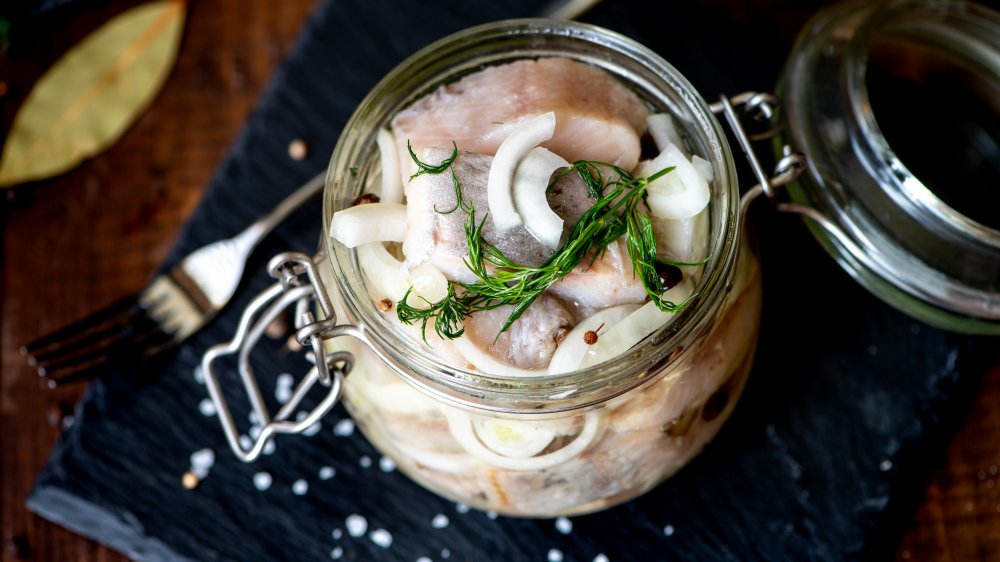The Taste Of Pickled Herring Might Surprise You
Pickled herring may not initially make the list of fondness-conjuring word pairs for most Americans like buttered popcorn, mac and cheese, or grilled steak might, but maybe we shouldn't sleep on this one entirely. Other countries in Scandinavia and the Caribbean give the fish its due. Though herring is not a large, sexy fish like salmon or tuna that Americans tend to love (via Go Get A Fish), The Takeout says they are inexpensive, sustainable, and rich in omega-3 fatty acids, giving us three really good reasons to at least give the fish a try.
Herring are small, bony fish that are naturally oily. If you are new to eating pickled herring, The Takeout recommends starting with the variety in wine sauce. During curing, the excess moisture of the fish is extracted with salt, and then it is pickled in a mixture of vinegar (helping to cut through the oiliness), onions, peppercorns, bay leaves, and other spices. This preparation makes the herring taste a little sweet and very oniony, and can be enjoyed with a variety of sauces on toast. Of course, once you acquire the taste of pickled herring, there are more ways to enjoy the oft-overlooked snack.
Kippers and a variety of other ways to eat herring
In addition to being sold in wine sauce, pickled herring is also available in cream. You can likely find this combination in jars at your local grocery store. According to the Takeout, it's basically pickled herring combined with sour cream, dill, and sweet onions. It's eaten the same way as pickled herring in wine sauce — on toast with a variety of other sauces.
Another way to enjoy herring is with a traditional British dish called kippers. According to BBC Good Food, A kipper is a herring that has been split, salted or brined, and then cold smoked. Kippers can be poached and served with scrambled eggs, or even with poached eggs cooked in the same water used for the fish. Of course, the most dramatic-looking way to eat herring is to hold it by the tail, tip your head back and lower in the whole, headless fish. Dutch herring, which is prepared in a light saltwater brine, is celebrated in the Netherlands during each new Dutch herring season. When waters warm, herring fatten up to prepare to mate, and the satisfied, fish-loving residents become filled to the gills with fresh, tasty herring (via Robb Report).

